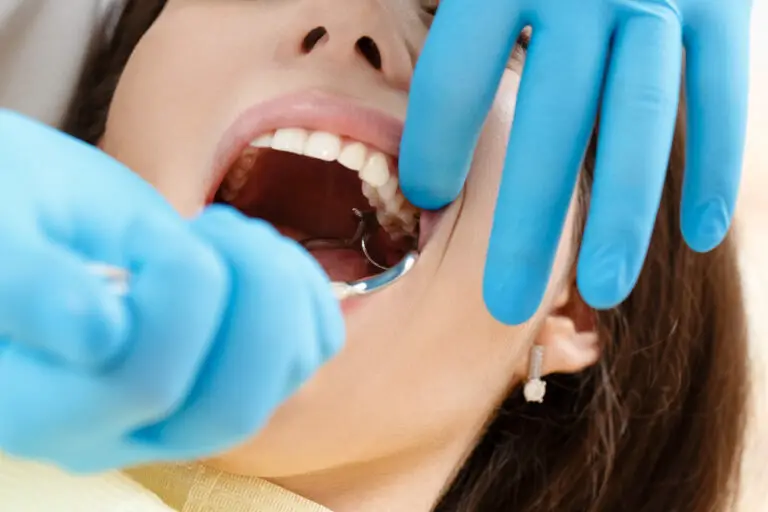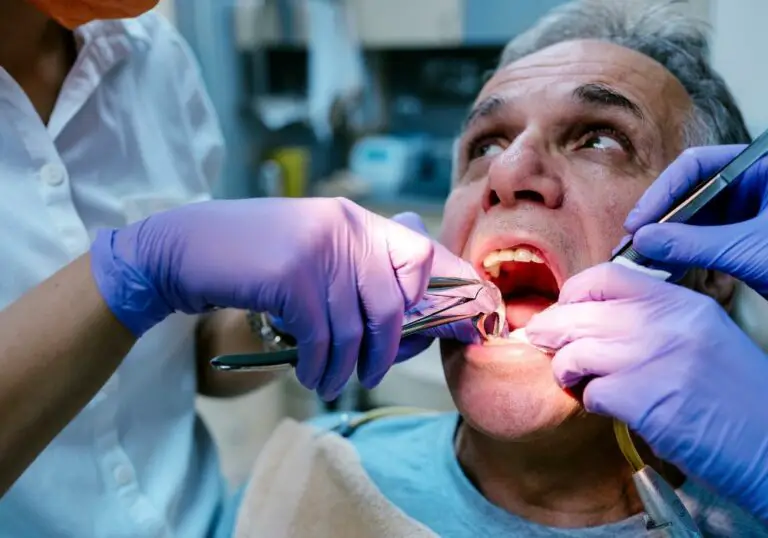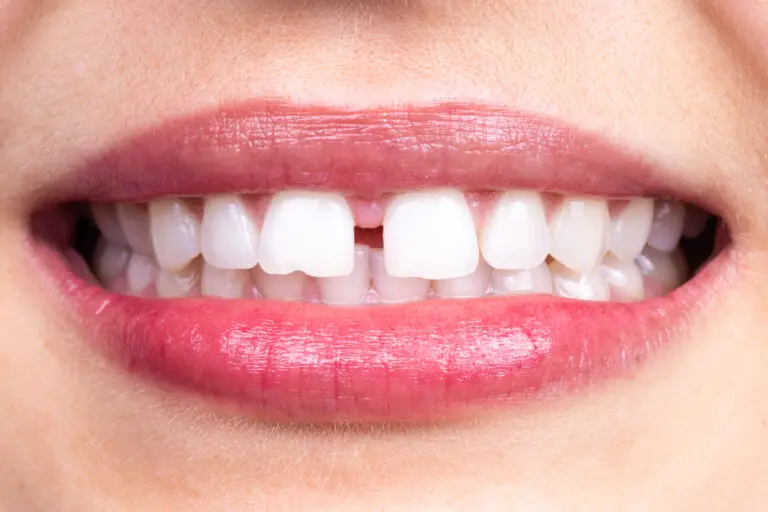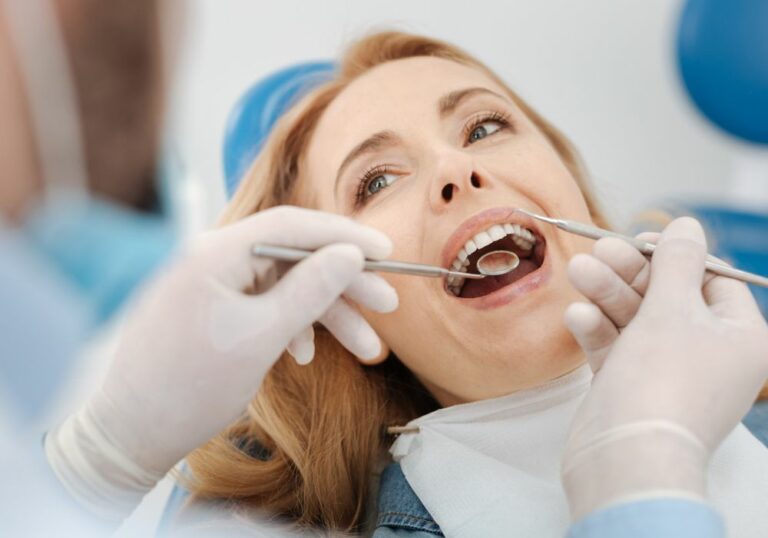If you’ve ever experienced tooth pain that seems to have no dental cause, you may be suffering from a type of pain known as cardiac toothache. This type of pain is caused by a problem with your heart, rather than your teeth or gums. Cardiac toothache can be difficult to diagnose, as it often feels similar to a regular toothache.
The pain of cardiac toothache is caused by referred pain. This means that the pain is felt in a different part of the body than where the problem is actually occurring. In the case of cardiac toothache, the pain is felt in the teeth and jaw, even though the problem is with the heart. This is because the nerves that supply the heart and the teeth are connected, so pain in the heart can be felt in the teeth and jaw.
Cardiac toothache can be a sign of a serious problem with your heart, such as angina or a heart attack. It’s important to seek medical attention if you experience tooth pain that is not related to a dental problem, especially if the pain is accompanied by other symptoms such as chest pain, shortness of breath, or dizziness. In the following article, we’ll take a closer look at cardiac toothache, including its causes, symptoms, and treatment options.
Understanding Cardiac Toothache

If you’ve ever experienced a toothache, you know how painful and uncomfortable it can be. But did you know that sometimes, a toothache can actually be a sign of a more serious condition, such as a heart problem? This is known as a cardiac toothache.
A cardiac toothache is a type of referred pain. This means that the pain is felt in a different part of the body than the actual source of the problem. In the case of a cardiac toothache, the pain is felt in the teeth or jaw, but the problem is actually in the heart.
There are several reasons why a cardiac toothache can occur. One possible cause is angina, which is a type of chest pain that occurs when the heart isn’t getting enough oxygen. This can cause pain to radiate to the teeth or jaw.
Another possible cause of a cardiac toothache is a heart attack. During a heart attack, the heart muscle is damaged, and this can cause pain to be felt in the teeth or jaw.
It’s important to note that not all toothaches are caused by heart problems. In fact, most toothaches are caused by dental problems such as cavities or gum disease. However, if you’re experiencing a toothache and you have a history of heart problems, it’s important to see a doctor as soon as possible to rule out any serious issues.
In summary, a cardiac toothache is a type of referred pain that occurs when the pain is felt in the teeth or jaw, but the problem is actually in the heart. This can be caused by conditions such as angina or a heart attack. If you’re experiencing a toothache and have a history of heart problems, it’s important to seek medical attention right away.
Symptoms of Cardiac Toothache
If you have a toothache, it could be a sign of a dental issue, but it could also be a sign of a cardiac problem. Cardiac toothache is a type of pain that originates in the teeth, but is caused by a heart condition. Here are some symptoms of cardiac toothache that you should be aware of:
- Pain in the teeth or jaw that is not relieved by over-the-counter pain medication
- Pain that is not triggered by eating, drinking, or touching the affected tooth
- Pain that is not limited to a single tooth or area of the mouth
- Pain that is accompanied by shortness of breath, chest pain, or other signs of heart disease
- Pain that is worse when you lie down or exert yourself
If you experience any of these symptoms, it is important to seek medical attention right away. Cardiac toothache can be a sign of a serious heart condition, such as angina or a heart attack. Early diagnosis and treatment can help prevent further complications and improve your overall health.
It is also important to note that not all toothaches are caused by cardiac problems. In fact, most toothaches are caused by dental issues, such as cavities or gum disease. If you have a toothache, it is important to see a dentist to determine the cause of the pain and receive appropriate treatment.
In summary, if you have a toothache that is accompanied by other symptoms, such as chest pain or shortness of breath, it could be a sign of a cardiac problem. Seek medical attention right away to receive a proper diagnosis and treatment.
Causes of Cardiac Toothache

If you’re experiencing pain in your teeth, it might not always be caused by a dental issue. In some cases, tooth pain can be a symptom of a more serious condition, like heart disease. Here are some potential causes of cardiac toothache:
Heart Disease
Heart disease can cause pain to radiate to different parts of the body, including the teeth. This is known as referred pain, and it can be confusing for patients who are experiencing tooth pain but don’t have any dental issues. If you have heart disease, it’s important to be aware of this potential symptom and seek medical attention if you experience any tooth pain.
Angina
Angina is a type of chest pain that occurs when the heart doesn’t get enough blood. This can cause pain to radiate to the teeth, jaw, and other parts of the body. If you experience tooth pain along with other symptoms of angina, like chest pain or shortness of breath, seek medical attention immediately.
In summary, tooth pain can be a symptom of a more serious condition like heart disease or angina. If you experience tooth pain along with other symptoms like chest pain or shortness of breath, seek medical attention immediately.
Diagnosis of Cardiac Toothache
If you are experiencing tooth pain that is not related to any dental issue, it might be a cardiac toothache. Diagnosing cardiac toothache can be challenging, as the symptoms can be similar to other dental or medical conditions. However, there are some ways to determine if your toothache is cardiac in origin.
The first step in diagnosing cardiac toothache is to rule out any dental causes. Your dentist will examine your teeth and gums to check for signs of decay, infection, or other dental issues. If your dentist determines that your toothache is not caused by a dental problem, they may refer you to a cardiologist.
A cardiologist can perform tests to determine if your toothache is caused by a cardiac issue. One common test is an electrocardiogram (ECG), which measures the electrical activity of your heart. Another test is an echocardiogram, which uses sound waves to create images of your heart. These tests can help your doctor determine if there is any damage to your heart that could be causing your toothache.
In some cases, a toothache may be a warning sign of a more serious cardiac condition, such as endocarditis or acute coronary syndrome. If your doctor suspects that your toothache is related to a cardiac issue, they may perform additional tests or refer you to a specialist for further evaluation.
It is important to seek medical attention if you are experiencing tooth pain that is not related to a dental issue. Ignoring a toothache could lead to serious complications, including damage to your heart or blood vessels. If you are unsure about the cause of your toothache, talk to your dentist or doctor to determine the best course of action.
Treatment Options for Cardiac Toothache
If you are experiencing tooth pain that is caused by a cardiac issue, it is important to seek medical attention as soon as possible. Treatment options for cardiac toothache may include medical treatment and lifestyle changes.
Medical Treatment
Your doctor may prescribe medications to help manage your cardiac toothache. These medications may include:
- Nitroglycerin: This medication helps to relax the blood vessels and improve blood flow to the heart.
- Aspirin: Aspirin helps to reduce inflammation and relieve pain.
- Beta-blockers: These medications help to slow the heart rate and reduce blood pressure.
In some cases, your doctor may recommend more invasive treatments, such as angioplasty or bypass surgery, to improve blood flow to the heart and reduce the risk of cardiac toothache.
Lifestyle Changes
In addition to medical treatment, lifestyle changes can also help to manage cardiac toothache. Some lifestyle changes that may be recommended include:
- Quitting smoking: Smoking can increase the risk of heart disease and worsen cardiac toothache.
- Eating a healthy diet: A diet that is high in fruits, vegetables, whole grains, and lean protein can help to improve heart health and reduce the risk of cardiac toothache.
- Exercising regularly: Regular exercise can help to improve heart health and reduce the risk of cardiac toothache.
- Managing stress: Stress can increase the risk of heart disease and worsen cardiac toothache. Finding ways to manage stress, such as through meditation or yoga, can be helpful.
It is important to work closely with your doctor to develop a treatment plan that is right for you. By following your doctor’s recommendations and making lifestyle changes, you can help to manage your cardiac toothache and improve your overall heart health.
Prevention of Cardiac Toothache

Preventing cardiac toothache involves maintaining good oral hygiene and taking care of your overall health. Here are some tips to help prevent cardiac toothache:
- Brush your teeth at least twice a day with fluoride toothpaste.
- Floss at least once a day to remove food particles and plaque from between your teeth.
- Use an antiseptic mouthwash to kill bacteria and freshen your breath.
- Eat a healthy diet that is low in sugar and high in fruits and vegetables.
- Avoid smoking and using tobacco products, as they can increase your risk of heart disease.
- Manage your stress levels through exercise, meditation, or other relaxation techniques.
- Visit your dentist regularly for checkups and cleanings.
By following these tips, you can help prevent cardiac toothache and maintain good oral and overall health. Remember to consult with your dentist or doctor if you experience any tooth pain or other symptoms.
Difference Between Cardiac and Dental Toothache
When experiencing tooth pain, it can be difficult to determine the cause. Toothaches can be caused by dental issues such as cavities, gum disease, or a cracked tooth. However, tooth pain can also be a symptom of a more serious condition, such as a heart attack. Here are some differences between cardiac and dental toothache that can help you determine the cause of your tooth pain.
Dental Toothache
A dental toothache is caused by a problem with the tooth or surrounding tissue. The pain is usually localized to the affected tooth and can feel sharp or throbbing. Some common causes of dental toothache include:
- Cavities
- Gum disease
- Tooth abscess
- Tooth trauma
- Cracked tooth
Dental toothache can be relieved with over-the-counter pain medications or by visiting a dentist to address the underlying issue.
Cardiac Toothache
A cardiac toothache is caused by a problem with the heart or blood vessels. The pain is often described as a dull ache or pressure that can radiate to the jaw, neck, or shoulder. Some common causes of cardiac toothache include:
- Heart attack
- Angina
- Aortic aneurysm
- Coronary artery disease
Cardiac toothache is a serious condition that requires immediate medical attention. If you are experiencing tooth pain along with chest pain, shortness of breath, or other symptoms of a heart attack, call 911 or go to the emergency room.
In conclusion, it is important to determine the cause of your tooth pain to receive proper treatment. While dental toothache can often be treated with over-the-counter pain medications or a visit to the dentist, cardiac toothache requires immediate medical attention. If you are experiencing tooth pain along with other symptoms of a heart attack, seek emergency medical care right away.
Frequently Asked Questions
What are the symptoms of tooth pain related to the heart?
Tooth pain related to the heart may feel like a dull ache or pressure in the teeth or jaw. You may also experience pain in your chest, neck, or arm. It’s important to note that not all tooth pain is related to the heart, but if you experience these symptoms, it’s important to seek medical attention.
What are the possible causes of tooth pain that radiates to the arm?
Tooth pain that radiates to the arm may be caused by a condition called angina, which is a type of chest pain caused by reduced blood flow to the heart. This pain can spread to the neck, jaw, arms, and back. If you experience this type of pain, it’s important to seek medical attention immediately.
What are some pre-heart attack symptoms in females?
Pre-heart attack symptoms in females may include shortness of breath, fatigue, nausea, vomiting, and jaw pain. These symptoms may be different from the typical symptoms of chest pain and discomfort that are commonly associated with heart attacks in males. If you experience any of these symptoms, it’s important to seek medical attention immediately.
How can I tell if my toothache is affecting my heart?
If you have a toothache and are experiencing chest pain, shortness of breath, or pain in your arm, it’s possible that your toothache is affecting your heart. It’s important to seek medical attention immediately to rule out any potential heart-related issues.
Is tooth pain ever a sign of a heart attack?
Tooth pain can be a sign of a heart attack if it is accompanied by chest pain, shortness of breath, or pain in your arm. However, not all tooth pain is related to the heart, so it’s important to seek medical attention to rule out any potential heart-related issues.
What does a cardiac toothache feel like?
A cardiac toothache may feel like a dull ache or pressure in the teeth or jaw. You may also experience pain in your chest, neck, or arm. If you experience any of these symptoms, it’s important to seek medical attention immediately.






